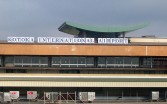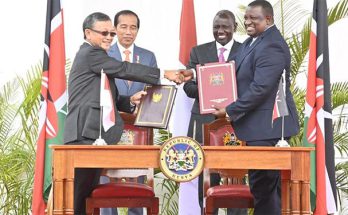 Start-up airlines have revolutionised air travel in Ghana over the past 18 months. Fares on domestic routes have fallen by up to 75 per cent. Passenger numbers on the main route from the capital Accra to the second city Kumasi have increased fivefold.
Start-up airlines have revolutionised air travel in Ghana over the past 18 months. Fares on domestic routes have fallen by up to 75 per cent. Passenger numbers on the main route from the capital Accra to the second city Kumasi have increased fivefold.
Now, two of the new domestic carriers are hoping to spread their wings throughout west Africa, where economies are growing fast but the aviation networks remain so poor that some experts call it “the last frontier” of air travel.
The first is Fly540, the budget airline that was launched by Lonrho in Kenya and Ghana and is now part of Fastjet. Backed by Sir Stelios Haji-Ioannou, of easyJet fame, Fastjet took off in Tanzania last month, but wants to become a “pan-Africa low-cost carrier”.
Starbow also has grand plans. Owned by Ghanaian investors who commissioned Lufthansa’s consulting arm to draw up a business plan ahead of its launch in 2011, the airline flies to three cities in Ghana. But the real opportunity lies beyond the country’s borders, according to chief executive Brock Friesen.
“If you look at the Caribbean where every country is an island, that’s almost how west Africa is when it comes to travel,” he says. “It is not interconnected.”
Starbow wants to make Accra the regional hub. It recently started flying to Ivory Coast’s economic capital Abidjan, offering return tickets from $280, around half what Emirates charges for the one-hour trip. Within 24 months Starbow aims to have opened routes to 12 west Africa cities, from Abuja to Dakar.
Though it is not a budget airline – it offers business class seats – Starbow operates with “low cost carrier principles”, Friesen says. That means using only one type of plane – the BAe 146 – and flying point to point rather than hopping between cities en route to the final destination. Unlike other west African carriers, such as Nigeria’s Arik, which flies to Johannesburg, New York and London, Starbow will stick to short-haul flying.
“The biggest mistake west African airlines have made is try to compete [with big foreign airlines] on long-haul routes,” Friesen says.
Even so, building a regional network will not be easy. Though west Africa has an open skies policy, obtaining the requisite safety permits from governments takes a long time. Jet fuel can cost 50 per cent more than in Europe. And airport taxes are steep by global standards, at between $60 and $100 per passenger, and remain “the single biggest impediment to aviation in west Africa”, Friesen says.



